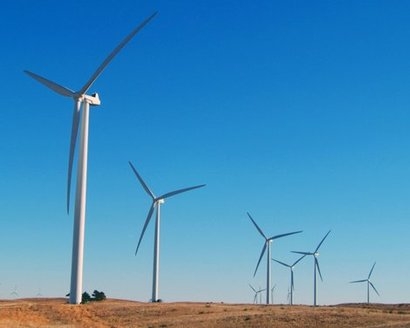
The Onyx Insight report, entitled “Data Access And Ownership: How the wind industry can leverage knowledge from rail, aviation and shipping” looked at data access and ownership in the wind industry and found that the wind energy sector needs to adopt data sharing practices in other industries such as those used in aviation if it is to compete with fossil fuels and play a fundamental role in the energy transition.
It concluded that the wind industry has the most to learn from aviation where data belongs to asset owners and all parties have a stake in its fair usage. This collaboration has enabled the development of tools that can predict when maintenance is required, which have helped to drive down operational costs and increase aircraft up-time, thus reducing disruption.
While the wind industry has been quick to adopt digitalisation and predictive maintenance practises, lack of access to data is holding it back from realising the full benefits of this technology. Missing data has the potential to give operators more detailed insights, enabling better asset management, long term O&M planning, and enhancing strategic maintenance. Unexpected turbine failure contributes to 58 percent of OPEX costs, the bulk of which is reactive, unplanned maintenance that could have been avoided.
Specifically, improved data sharing could lead to new analytical methods such as the application of Artificial Intelligence (AI) to improve turbine performance. The massive potential of AI is recognised throughout the industry, but these methods have to date been hampered by the lack of clean, cross-platform, normalised data. Improved data sharing has the potential to fully unleash AI and lead to a significant reduction in LCoE (Levelised Cost of Energy) across the renewables sector.
The report also found that turbine owners need to better leverage their contract negotiation position to ensure the sharing of data becomes a contractual requirement and that these negotiations are not left until after the contract is signed, when bargaining power is lost.
Currently, most OEMs in the wind energy sector can restrict access to data. Among the top 12 CMS (Condition Monitoring System) hardware providers, comprising over 80 percent of market share, only one gives turbine owners and operators full CMS data access. Four CMS providers offer limited access and seven give no access to data at all, limiting owners’ maintenance and servicing options.
“With a rapidly falling LCoE, solar energy is gaining market share” said Bruce Hall, CEO of Onyx Insight. “The wind sector needs to continually look for ways to increase its competitiveness and boost efficiencies to realise its crucial role in the energy transition. This will ensure that our future energy mix is diverse and takes full advantage of the technologies available to drive decarbonisation. Collaborating on data access is a critical example of how the wind industry can do this.
Our report shows there is no universal or standard approach to data sharing, but wind should follow aviation’s lead by empowering owners and operators. To be clear, OEMs shouldn’t be put into a position where they are having to provide intellectual property around design – that data belongs to them. However operational data is different; open access to operational data is critical as it helps owners get the very best out of their asset.
The technological advances and increased reliability that could be derived from better sharing of data are crucial in accelerating the green agenda, and play a huge role in driving down the cost of energy to make wind more competitive.”
For additional information:

